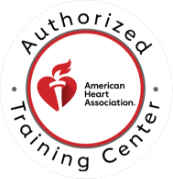

CPR Resource Center
The most comprehensive library of emergency training resources — including videos, articles, downloads, and more.


The most comprehensive library of emergency training resources — including videos, articles, downloads, and more.
In a blog article I posted earlier this year, I shared some of the new requirements coming forward from Connecticut and its adoption of the National Registry of Emergency Medical Technicians (NREMT) process for EMS recertification which was expected to take effect in 2020.
Those requirements, coupled with a separate legislative act requiring Mental Health First Aid for new EMS certifications (removed by legislative action March 2020), are now official and will take effect January 1. Connecticut EMTs will follow the NREMT’s Recertification plan and schedule to maintain their Connecticut certifications.
I’ve compiled the answers to the most frequent questions we are being asked about this change:
In the past EMTs have only been required to attend a Connecticut approved EMT Refresher course every three years. This course was 30 hours of education, skills practice, and testing which was typically completed in close proximity to the expiration date of the providers certification.
The NREMT process encourages ongoing education – short and frequent classes which keep EMS providers up to date throughout the two year certification cycle.
The number of education hours will increase to 40, however only about 20 hours (the “National Component”) are prescribed to certain topic areas. The balance of the hours – 10 for the “Local or State Component” and 10 for the “Individual Component” are left up to the provider to complete on topics that interest them. Some medical directors will designate specific topics or classes for the Local Component.
The elective hours come with flexibility for EMS providers. They can get EMS contact hours from:
More than half of the hours (24 to be exact) can be obtained through distributive education – content such as articles, recorded online training, and podcasts which are not conducted in real-time. The balance of the 16 hours are live courses which may be completed in-person or virtually via web conference.
An NREMT credential will not be required for Connecticut EMS providers to maintain their certification, however, all certified personnel will still need to follow the NREMT Recertification process to keep their state certification current.
Connecticut EMS providers who previously held a NREMT credential and have maintained continuous state certification will receive information from OEMS in early 2020 regarding the Mark King Initiative (MKI). The MKI issues EMS providers a NREMT credential without having to complete the usual testing requirements. A small processing fee and some paperwork is required for NREMT reinstatement through the MKI.
NREMT does not require you to be affiliated with an EMS agency to maintain your NREMT or state EMS credential. Providers who are not affiliated with an EMS agency should request “Inactive” status during their NREMT recertification which will bypass the affiliation and skills verification step.
EMS Agency Training Officers and Medical Directors should verify skills for active members during their NREMT Recertification. Those who have completed the education requirements and have had skills verified will show an “Active” status in NREMT.
Connecticut EMS providers who have an expiration date within one year may still renew early through a state-approved EMT Refresher course before 2020. The biggest advantage is that these providers will receive a three year certification if they complete their renewal training in 2019.
Code One has a few remaining EMT Refresher courses in 2019. EMTs may complete either our hybrid EMT Refresher course (online + 1 day of in-person skills and testing) or the instructor-led EMT Refresher course (4 day course conducted over a weekend).
Code One has been following this process since it was first conceived and we’ve formulated a few solutions for our clients:
We think so. The new process has benefits that will make it easier and less costly to maintain EMS certification through ongoing education. With the ability to use elective hours for half the renewal requirement, providers will be able to get credit for many of the activities – like EMS drills, conferences, and reading articles – that they were already doing.
Further, a public health benefit comes from maintaining a team of EMS providers that are routinely reviewing topics and staying up-to-date on current trends in emergency care.
The Connecticut Office of Emergency Medical Services (OEMS) is a great resource for more information on this change and how it pertains to state certification. See the “Connecticut and the National Registry of EMT (NREMT)” section on this page.
The NREMT also has information regarding this process and the hour requirements for recertification. The NREMT also produces a detailed Recertification guide with frequently asked questions.
Help Me Find a Course